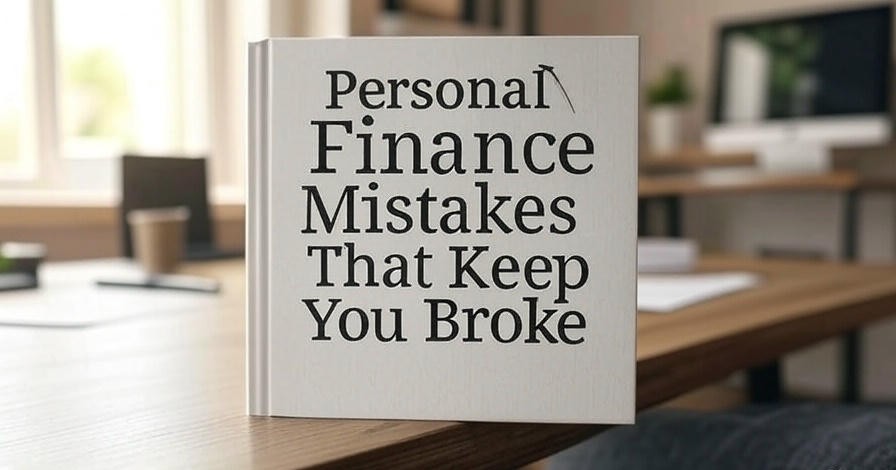We’ve all made personal finance mistakes – some small, some painfully expensive. But what separates those who struggle financially from those who thrive often comes down to avoiding just a few critical errors. After helping hundreds of people repair their finances, I’ve noticed these five mistakes come up again and again.
The Emergency Fund Oversight
Here’s a hard truth: 56% of Americans can’t cover a $1,000 emergency. Many think “I’ll save when I earn more,” but that day rarely comes. Without this financial cushion, a single setback – a job loss, medical bill, or car repair – can send you spiraling into debt. The solution? Start absurdly small if you must. Even $25 a week builds to $1,300 in a year. Automate it so you don’t have to think about it.
The Credit Card Trap
Minimum payments are the devil’s math. That $5,000 balance at 18% interest? Pay just the minimum and you’ll shell out nearly $8,000 over 15 years. Yet millions do this while still using cards for daily spending. Break free by: 1) Freezing your cards physically (literally, in a block of ice if needed), 2) Attacking your smallest balance first for quick wins, and 3) Calling your issuer to negotiate lower rates.
Keeping Up With the Joneses
I once bought a luxury watch I couldn’t afford to impress people I didn’t like. Sound familiar? Social media has amplified this pressure exponentially. The reality? That $800/month car lease could be $500,000+ in retirement funds if invested instead. Before any status purchase, ask: “Would I still want this if no one could see it?”
Analysis Paralysis With Investing
“Stocks are too risky.” “I’ll wait until I know more.” Meanwhile, your cash loses 2-3% annually to inflation. The truth? You don’t need to be Warren Buffett. Setting up automatic contributions to a low-cost index fund (like VTI or SPY) takes 20 minutes and outperforms most “experts” over time.
The Tomorrow Illusion
“Retirement is decades away.” “I’ll budget next month.” This procrastination costs more than any market crash. Compound interest works both ways – the $100/month you don’t invest at 25 becomes $1,000/month you’ll need to save at 45 for the same result.
The Bottom Line
Financial freedom isn’t about perfection – it’s about avoiding the big personal finance mistakes that compound against you. Pick one area to improve this month. Maybe it’s finally starting that emergency fund, or maybe it’s just checking your credit score for the first time. Small steps create big changes.
Which of these resonates most with your money journey? For me, overcoming the “keeping up” mentality was the game-changer. What will yours be?


Leave a Reply